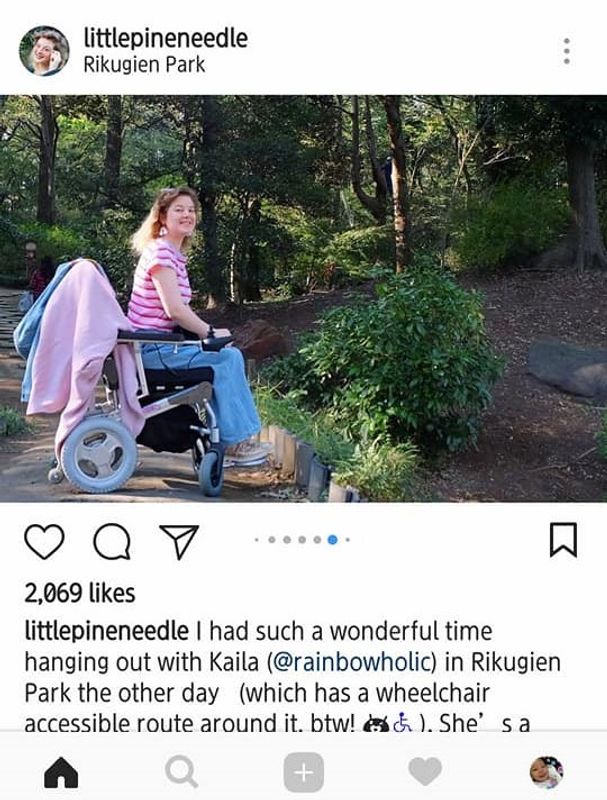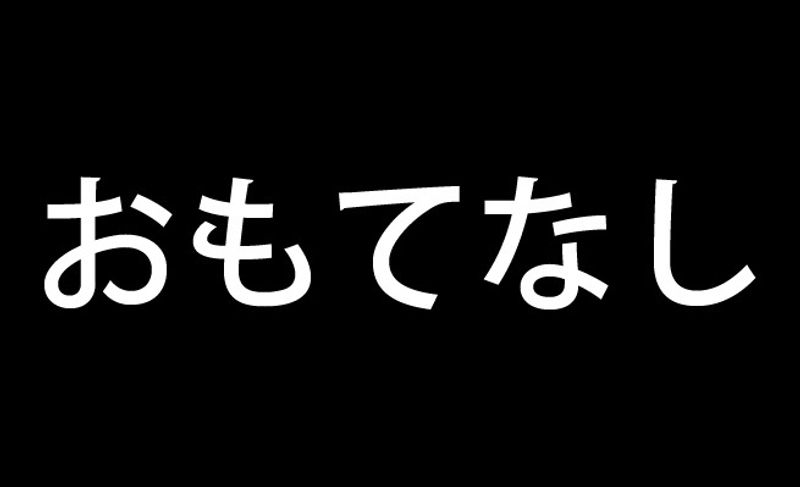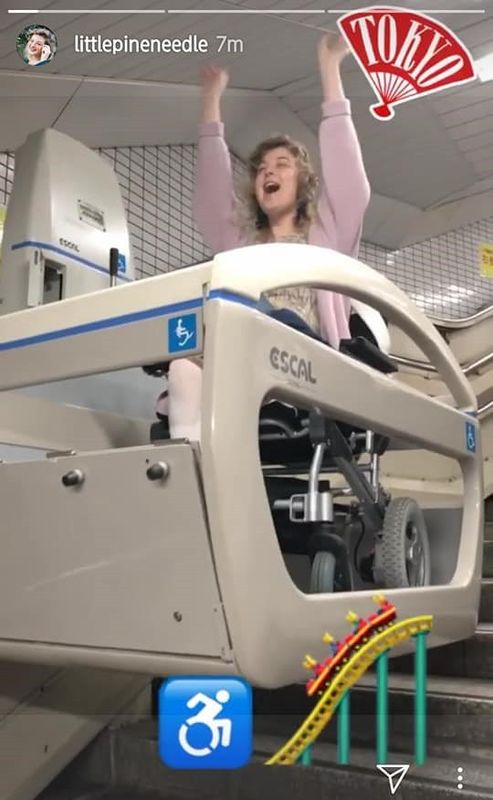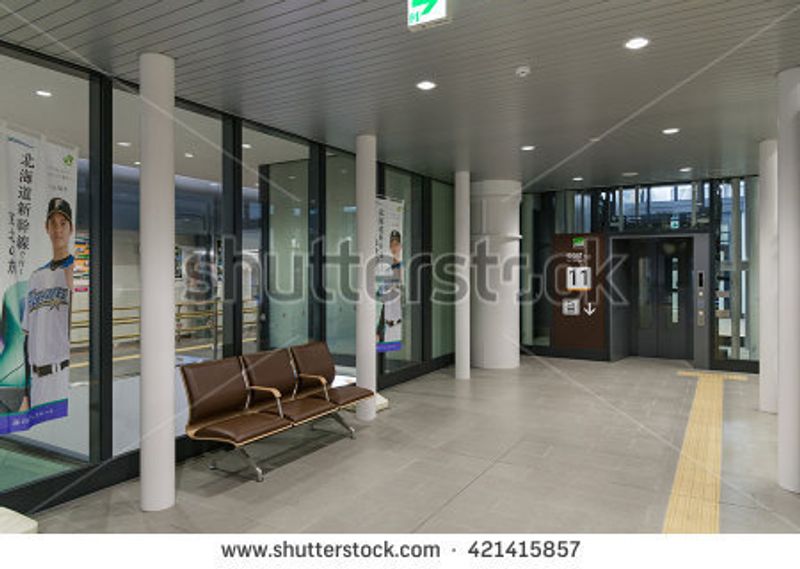Nov 27, 2017
Enjoying Japan with a disability
Just because some part of you doesn’t happen to work like the majority around, doesn’t mean you are less deserving of enjoying the same experiences as everyone else. Anyone can travel. Anyone can enjoy it. Travel is stressful for everyone though, even the perfectly able-bodied. Travel in Japan, I have found, can be just a bit less stressful than other countries. Here are a few reasons why.
One of my favorite YouTubers, Annika Victoria, recently made a visit to Japan. She knows what’s what when it comes to where to travel. She also knows what it is like to travel with a disability. Because of health reasons, she requires a wheelchair to travel around. But that doesn’t stop her and it shouldn’t stop you or anyone. So I asked her a bit about her experience here and she graciously answered my questions.

She wrote, “In contrast to Australia, people in Japan will not stare at me or rudely ask "what's wrong with me", and I don't think that's just because they mostly don't speak English - it's just really impolite in Japanese culture to bother yourself with other people's business. People are not nosey! However, as soon as I need help, people will help me out.”
Everyone is the same in Japan. Therefore, there is no shame in needing help. No one will judge you. Everyone needs help at some point, whether its to get up a set of stairs in a wheelchair, find a restaurant that fits your dietary needs or just help to understand a simple sentence written in kanji. Japanese are taught this from a young age at school. It goes with the "everyone is the same attitude". Everyone is treated equally and everyone helps everyone else. Japanese are raised to “hammer the nail” down for those who stick out, but that means that those who do stick out are just another part of society and should be helped to fit it.
“... and I only speak a very small amount of Japanese, I feel like people here have made more of an effort to be helpful than they are back at home in Australia. I am used to feeling like a huge burden when I catch the train in Australia, for example, but here I feel like they are really happy to help me and I don't feel like a burden at all. It's a small thing, but it makes a huge difference to my confidence in going out in my wheelchair, especially when I'm on my own.”

Its part of the “Omotenashi spirit”, just Japanese service. In most places in Tokyo or other metropolitan areas, assistance won't be necessary, though. You can get pretty much anywhere you want on your own. Anywhere not living 3 decades in the past, or even a decade and a half, will have all the accessibility you will need. That being said, many stations further out haven’t been updated since the time they were built. You won't find elevators, ramps, or any way over the platform stairs except generosity and help from others. Anyone not rushing to their next train is likely to help though. Also, station staff will call ahead to your destination or transfer and someone will come to assist you. Omotenashi. You also won't be obliging them. It is part of the job. For a friend of mine who works at a station in the sticks, this is his favorite part of the job. He carries my son’s stroller when we pass through. I recently listened to a podcast by Eat Your Kimchi, a couple living in Japan that also vlog about their time here, about their experience with the Omotenashi spirit of train staff and getting around a platform in a wheelchair. One station master escorted them to an elevator, then out of courtesy, dashed the stairs to meet them getting out of the elevator.
“ It still took a lot of extra planning, phone calls, and paperwork to make sure I'd have all the extra accommodations and medications I'd need over here (in Japan) I’m still frustrated by having to have naps every day and have rest days when Tokyo is right outside my door! But its been 100x easier than last time (previously she came without a mobility aid)…if you have a disability or illness and thought that’d make future plans impossible for you, I hope that seeing me out and about crushing it this time has given you some hope and positivity!”

Be like Annika. Crush it and take the world on. Then take a rest day and have some chill time in a hotel. Order a bento, or get some ramen delivered. You can do that! Check with the hotel desk about restaurants that deliver nearby.
Now onto more practical advice for your travels.
You can find whatever you need, especially in metropolitan areas. Knowing where to look is key. One of the most frustrating and scary things about traveling is finding the bare necessities. Knowing you will have a restroom you can use, space in a restaurant to eat. A hotel that has a ramp so you can get to your room. Finding these things are key to a stress-free trip.
Finding an elevator
There are signs in all the stations. If you don’t easily see one, then you must be heading away from it, so turn around and head the other way. The truncated domes intended for blind, yellow bumpy paths, often lead to elevators.  Sometimes, once behind the gate, there are no elevators. Don’t be afraid to ask to get to the other side of a gate for the elevator.
Sometimes, once behind the gate, there are no elevators. Don’t be afraid to ask to get to the other side of a gate for the elevator.
Finding a restroom
They are there. Usually around the corner from the able-bodied men and women’s restrooms but they are there. Like with the priority seats on the trains, this is the priority restroom. And it is multifunctional. Not only a toilet with handrails, but also a space for cleaning up, a baby changing table and very often a full sized fold down bed for those who need assistance.
Finding food
This can be the most frustrating aspect because of the small spaces typical of Tokyo. Restaurants build up not out, and many times their seating is on the second and third floors with no elevator access. Even the front step into the restaurant is just that, a step, a flight of narrow stairs, not accessible at all, no ramps. There are places that are accessible though. What Japan refers to as “family restaurants” are your best bet. Gusto, Joyful, Big Boy, Jonathans, just to name a few. Gurunavi is a fantastic site for anywhere in Japan when you are looking for food. You will need to choose an area then find the “More Search Features” in the middle of the page. This will allow you to look for places with wheelchair access, or maybe a certain dietary need. Vegan, perhaps?
Gurunavi will also help you find that place that delivers to your hotel room on your rest days.
There are so many resources online in English that just a small Google search will quickly bring up. I hope this has encouraged everyone to get out and travel, especially here in this wonderful country.



2 Comments
genkidesu
on Nov 27
This was such a great piece! It made me think a lot about disabilities and how they're treated in Australia versus here, too. I'm glad she loved Japan and found people to be so helpful!
edthethe
on Nov 28
@genkidesu annika is a really great inspiration. I love that she is willing to share her struggles. Im hoping this post is encouraging for those who think they can't travel. I know I had a hard time convincing myself to get out when I was having difficulty walking.